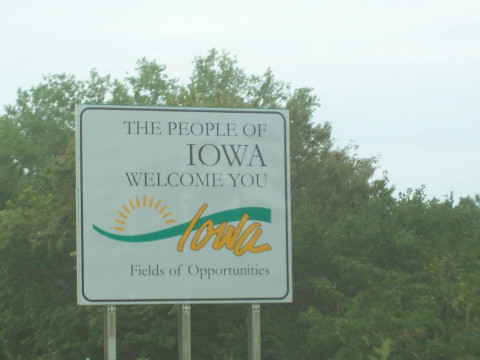
A lot has been made about the "nonpartisan" Wisconsin Taxpayers Alliance's recent and very timely "study" saying that taking away mandatory minimum wages for the workers who build our roadways and other public projects will result in savings of $200-300 million.
Why? Because the owners of the companies that build these projects will pass along all their savings in lower wages right to the taxpayer in the form of lower bids! It's trickle-down government!
Don't think it will work, huh? Well, let's look at the only one of our neighboring states that doesn't have a prevailing wage law: Iowa.
Iowa has a lower median household income of $51,843, compared to $52,413 for Wisconsin. As such, you'd expect that Iowa's per lane-mile cost would be lower than Wisconsin's-- especially considering that Wisconsin is the one with prevailing wage law, right?
Wrong: In 2012, the per lane-mile cost in Iowa was $5,732, while the cost in Wisconsin was only $4,341.
The absence of a prevailing wage in Iowa just means more of a profit for the road building companies and less take home pay for the workers.
The reality is that there are many factors that drive the cost of road construction and other public works projects and wage costs are just one small part of the equation.
If you really want to reduce the costs of public works projects, ensure better competition. For example, stop the common practice of two or three companies colluding with each other to bid on a project and then splitting up the work afterwards, regardless of who wins the bid.
Or stop interfering with local county highway departments that like to cut costs by doing a lot of the road building work themselves.
Or wait... I've got it! How about, for once, instead of looking to the people at the bottom to make a sacrifice, ask the people at the top to take a less obscene profit margin?
